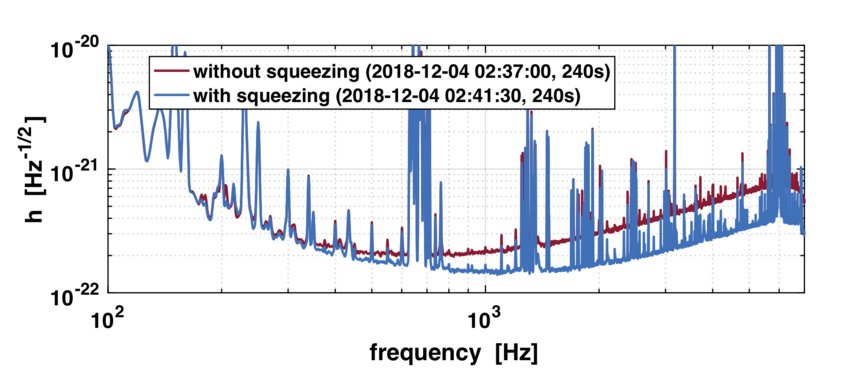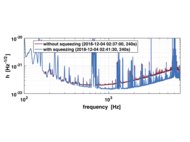
December 2018
Almost 6 dB of squeezing in GEO600
The detection of Einstein's gravitational waves relies on highly precise laser measurements of small length changes. The international detector network is now so sensitive that it is fundamentally limited by quantum mechanical effects. These cause an ever-present background noise which overlaps with gravitational-wave signals. One can change the properties of this noise – with a process called squeezing – such that it interferes less with the measurement. Now, GEO600 researchers have achieved better squeezing than ever.
The team from the Max Planck Institute for Gravitational Physics (Albert Einstein Institute; AEI) and Leibniz Universität Hannover reached a squeezing level of 5.7 dB in GEO600, thereby suppressing the quantum background noise by a factor of almost 2. Compared to a detector without squeezing, this increases the observable volume of the Universe by a factor of 7. Read more in our news item:
